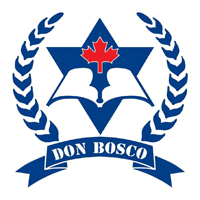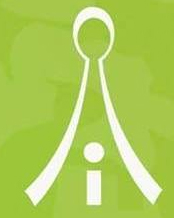Overview
BBA at Kantipur College of Management and Information Technology (KCMIT), Mid-Baneshwor, Kathmandu
Target readers include Nepali students, parents, educators, and decision-makers seeking a clear guide to the Tribhuvan University (TU) Bachelor of Business Administration (BBA) at KCMIT. This page covers the BBA curriculum, CMAT entrance, admission rules, learning process, skills, and career paths under TU Faculty of Management (FoM).
BBA at KCMIT (Basuki Marg, Mid-Baneshwor, Kathmandu) runs under Tribhuvan University, Faculty of Management. The degree follows TU’s semester system and assessment rules. Students study core management, quantitative methods, economics, accounting, communication, information systems, research, and a supervised internship. The CMAT entrance test applies as per TU FoM.
KCMIT delivers the course in a compact city campus setting. You get access to management faculty, computer labs, and activity spaces shaped around TU’s course cycle and exams. Program-level standards (eligibility, CMAT, grading, internship, and course structure) follow FoM’s BBA curriculum documents for current academic batches.

Highlights
University & Faculty: Tribhuvan University (TU), Faculty of Management (FoM)
College & Location: Kantipur College of Management and Information Technology (KCMIT), Basuki Marg, Mid-Baneshwor, Kathmandu
Program Length: 4 years, 8 semesters; semester examinations conducted by FoM
Entry Test: CMAT (FoM) with sections on verbal, quantitative, logical reasoning, and general awareness
Teaching Mix: Lectures, cases, group work, projects, practicums, and an 8-week internship carrying credit and evaluation
Curriculum Details
TU’s BBA sets out a structured course cycle across eight semesters. Modules span management foundations, economics, accounting and finance, marketing, operations, business law, business environment in Nepal, research methods, entrepreneurship, information systems, communication, and quantitative techniques. The curriculum includes seminar or practicum components and a credit-bearing internship in the final phase.
Representative study areas (TU BBA):
-
Management core: principles of management; leadership and organizational behavior; strategic management; business ethics and corporate governance.
-
Quantitative and research: business mathematics, statistics, operations management, business research methods.
-
Economics and environment: microeconomics, macroeconomics, business environment in Nepal, legal environment for business.
-
Accounting and finance: financial accounting; cost and management accounting; business finance.
-
Marketing and entrepreneurship: fundamentals of marketing; entrepreneurship and business plan practicum.
-
Information systems: computer and IT applications; management information systems.
-
Communication: academic and business communication courses that support reports, presentations, and teamwork.
KCMIT delivers the BBA in line with these TU documents and schedules internal work, presentations, and semester evaluations accordingly.
Objectives
The BBA aims to prepare students for entry- to middle-level roles in business and public organizations and to provide a solid base for postgraduate study. Goals include building problem-solving ability for practical business issues, enabling clear written and oral communication, integrating information systems exposure, and supporting progression to master’s programs.
Scope
Students develop knowledge useful in banking, microfinance and cooperatives, trading houses, retail, hospitality, manufacturing, NGOs/INGOs, and public-sector projects. Scope depends on course choices, projects, and internship placement. The semester model supports steady skill building while keeping focus on Nepal’s operating context through modules such as Business Environment and Legal Environment.
Learning Outcomes
Graduates learn to read financial and operational information for daily decisions. Students use basic analytical tools from research and operations. You practice clear communication in reports and presentations. Teams plan and execute short projects under time constraints. Ethics and governance modules guide decision standards. The supervised internship and final report connect coursework to workplace practice.
Skill Development Modules
Academic and workplace skills are woven across the semesters:
-
Analytical skills through statistics, research methods, and operations tasks.
-
Financial literacy through accounting and finance courses in the middle semesters.
-
Communication skills through English and business communication for writing and presentation.
-
Technology use through MIS and IT applications such as spreadsheets and databases.
-
Teamwork and leadership through group cases, seminars, and organizational behavior.
-
Ethics and governance through dedicated modules that inform decision-making.
Short, practice-oriented activities (case analysis, simulations, plan presentations) appear across modules to strengthen these skills before the internship.
Teaching Methodology
FoM outlines a mix of class lectures, group discussions, case studies, guest talks, role play, research and project work, assignments, practicums, and term papers. Instructors prepare a course plan at the start of each semester and recommend core texts and references. KCMIT follows this approach and runs internal assessments alongside semester examinations.
Admission Requirements
Applicants must complete 12 years of schooling/+2/PCL or equivalent from a recognized board. Minimum grades include D+ in each subject of grades 11 and 12 with CGPA 1.80 or more, or second division in 10+2/PCL.
Applicants submit the CMAT application and appear in the test as instructed by FoM. The college completes document verification and counseling steps during admission.
CMAT Entrance Test (FoM Rules):
Pattern: Four sections—verbal ability, quantitative ability, logical reasoning, and general awareness—totaling 100 objective questions.
Qualifying Threshold: Minimum of 40% in CMAT to qualify for interview shortlisting.
Final Selection: Based on CMAT and subsequent steps notified for the cycle.
Evaluation and Internship (TU Rules Applied at KCMIT)
Evaluation Split: Internal (ongoing) 40% and end-semester (external) 60%.
Internal Threshold: Students need at least a B (GPA 3.00) in internal evaluation to sit for the semester exam.
Internship: An 8-week internship in the final semester with report, organizational assessment, and presentation. Students must secure at least Grade C, and the internship carries credit weight in the degree plan.
Career Opportunities
Early roles after BBA often include banking operations assistant, credit support, or branch service roles. Graduates enter junior positions in accounts, audit support, and finance back office. Sales and channel coordination roles in FMCG or services are common. HR or administration support roles appear across sectors. Project coordination roles arise in development and public-sector tasks. Entrepreneurship and family-business roles remain an option for many graduates.
Career progress depends on electives, project work, internship outputs, and performance during the first two years of employment. The BBA also serves as a base for master’s study in management fields (MBA, MBS, MBM as per TU paths).
Scholarships and Financial Aid
TU-affiliated colleges, including KCMIT, announce merit-based or internal scholarships depending on semester results or university distinctions. Coverage, number of seats, and continuation rules vary by year. Applicants should obtain the latest signed notice from KCMIT’s admission office before applying.
Why Choose BBA?
Students receive a nationally recognized undergraduate management degree under TU FoM. The program structure is clear across eight semesters, with internal and external evaluation and a for-credit internship. KCMIT’s Mid-Baneshwor setting allows convenient access for Kathmandu Valley students. The entrance process remains transparent under CMAT rules and public notices.
Conclusion
BBA at KCMIT follows TU Faculty of Management rules on curriculum, entrance, evaluation, and internship. Students gain a steady grounding in management with chances to apply learning through projects and an eight-week internship. The program suits learners aiming for early roles in banking, services, and operations, and those planning postgraduate study in management. For current admission dates, CMAT forms, and scholarship updates, check FoM notices and KCMIT admissions before submission.
FAQ
1) Is BBA at KCMIT under Tribhuvan University?
Yes. KCMIT is TU-affiliated, and BBA follows FoM curriculum and exam rules.
2) How long is the program and how are exams handled?
Four years across eight semesters. FoM conducts end-semester examinations; internal assessment runs throughout the semester.
3) What is the CMAT pattern and qualifying threshold?
The CMAT includes four sections and 100 objective questions. A minimum of 40% is required to qualify for interview shortlisting.
4) What are the minimum academic grades to be eligible?
At least D+ in each subject of grades 11–12 with CGPA 1.80+ or second division in 10+2/PCL (or equivalent), plus completion of CMAT steps.
5) Does the program include an internship?
Yes. An eight-week internship in the final semester carries credit, requires a report and presentation, and needs at least Grade C.





















